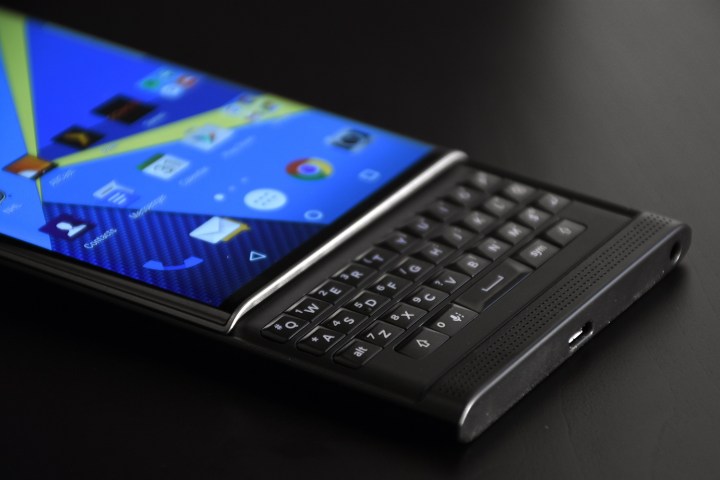
The writing is on the wall. BlackBerry’s smartphones command less than 1 percent of the global market; its hardware division accounts for more than 65 percent of its research and development expenses; and Wall Street analysts project that, on its current trajectory, the company will lose money in 2017 and 2018. At a shareholder meeting in June, CEO John Chen said he didn’t “personally believe devices [were] going to be the future of any company,” and that he’d make a call in September about whether or not BlackBerry would continue to invest in smartphones.
Chen emphasized that the company’s short-term success in the sector — or lack thereof — would determine its fate. “The device business must be profitable — we don’t want to run a business that drags on the bottom line,” he said. “It’s time for us to get to the profitability … we’ve got to get there this year.”
An update on that decision is expected at the company’s upcoming investor call.
Perhaps tellingly, BlackBerry has launched a sitewide sale on all cases, chargers, batteries, and audio products for its existing handset line, the midrange DTEK50 and pricier Priv. It is selling accessories at a reduced price until September 27 — the day before its second quarter call.
In July, BlackBerry told U.S. carriers including Verizon and AT&T that all devices running BlackBerry 10 would be discontinued in the near future. And earlier in theyear, it halted production of its Classic cellphone model. (The decision disproportionately affected U.S. Senate staffers, more than 28 percent of whom reportedly use a BlackBerry phone).
The Motley Fool reported that underperforming hardware is to blame for the winddown. BlackBerry’s Priv, which launched in November of last year, contributed to disappointing first-quarter device sales of 500,000 units — a dip from the 2.1 million the firm sold during the same period in 2014. Analysts blamed its sky-high price tag of $700, which Chen acknowledged was a misstep. “[The Priv is] unfortunately too high-end and is not moving as fast as we’d like,” he said. “Our phones are not in high demand”
Despite the series of setbacks, a shutdown would seem counter to BlackBerry’s reinvigorated market push. In July, BlackBerry partnered with TCL Communications to produce the DTEK50, an affordable handset it described as the “world’s most secure.” It ships with BlackBerry’s proprietary Hub, a software aggregator of unread emails, instant messages, calendar notifications, frequent contacts, app notifications, and scheduled tasks, along with DTEK, a security solution that protects against malware and “other problems” by recommending courses of action.
Historically, security has been a BlackBerry device selling point — indeed, both the Priv and DTEK50 feature encryption technology like hardware Root of Trust, full disk encryption, and a secure bootloader. But recent revelations have tarnished that image. In February, BlackBerry said it regularly complied with lawful requests from the U.S. government for customer data, and in April, a joint investigation by Motherboard and Vice found that Canada’s federal enforcement agency, the Royal Canadian Mountain Police, had been in possession of BlackBerry’s global encryption key since 2010.
Software is likely to be BlackBerry’s new bread and butter. The company’s apps and services subsidiary, Mobility Solutions Group, generates more than $500 million a year — the company said it’s aiming for 30 percent growth in the software. To that end, the company last month debuted BlackBerry Hub+, a premium subscription suite of the company’s Password Keeper, Calendar, Notes, Tasks, and Device Search apps for Android — services previously exclusive to the company’s own Priv and DTEK50. It costs 99 cents per month.
“I can’t tell you that we’re a great market company, but we’re trying to rebuild our brand and rebuild the interest into the phones,” said Chen. “I think we are stabilized, but we’re not out of the wood.”
Editors' Recommendations
- BlackBerry’s latest revival attempt crashes before launch
- BlackBerry rises from the grave: New 5G phone with a keyboard coming in 2021

